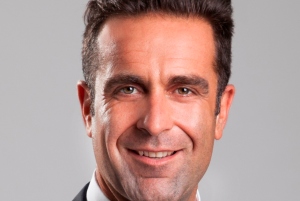Why we must embed IoT into a broader context

Alexander Bufalino of KORE Wireless
Should robots that take people’s jobs pay taxes? Bill Gates was following this question intensively a few days ago. Rightly so, says Alex Bufalino of KORE Wireless, because questions like these determine decisively how successful and how positively the Internet of Things (IoT) will change our world.
In recent years, we’ve all talked a lot about the IoT. About its transformative potential, about business models and applications, about new business cases and the “ten most important strategic recommendations to arrive in the IoT era”.
We have established logical connections between different frontline technologies such as artificial intelligence (AI) and Deep Learning, 3D Printing, Robotics and Fog Computing, and discussed how supply chains and factories change their structures and open their gates to the broader networks.
Fair enough. At the same time, however, it could be observed that quite different discourses have arisen in connection with the IoT and the digitisation in general. The focus was on quite different aspects of the subject: how strongly will our society change if we reach an ultimate level of transparency? How to read the stories of Julian Assange, Edward Snowden, or Chelsea Manning from a business perspective?
How successful can be the increasing decentralisation and autonomy of systems, processes and decision-making bodies among the broad, not so decentralised and autonomous organisational forms and management systems in the company? What does the ability to transform IoT-based ideas virtually without starting capital into multi-million dollar business mean for the classic employee & employer model? Or even: Should robots pay taxes?
These debates have been and are usually conducted outside the business world. They are conducted by scientists, journalists, bloggers, activists, politicians, NGOs, platforms like the World Economic Forum, or by outstanding personalities like Bill Gates. But does this dimension of digital transformation and the IoT, play a role for us in the world of business? Honestly, it is a train that runs on a parallel track. We naturally perceive these debates, but they usually have no serious implications for our corporate practices.
But is this a problem? Yes, it is a problem. A business model and a technology can neither be understood nor successfully implemented beyond their broader context. The business opportunity is not about equipping things with sensors and connectivity and routing the data into a managed cloud-based platform.
If you look at the disruptions of recent years, technologies have always played a role. But a technology, however advanced it may be, does not form a billion-dollar company.
Henry Ford was not that successful because of his innovative manufacturing principles, but because he recognised the deep desire for personal freedom and mobility. Steve Jobs felt that the time was right to give people a technology that is so pleasant, so heavily woven into life that it is no longer a technology.
Elon Musk does not build his empire at random with the size, the risk-tolerance and the almost baroque spirit of a Medici. His criterion is not efficiency, and his question is not how to build a perfectly running car factory, but how to use a car as a Trojan horse for a market that is so much bigger than the potential market for Tesla.
Travis Kalanick realised that constraints and monopolies are no longer accepted by people of the 21st century. And he has understood how to combine the analogue and the digital world in such a way that people receive not only a new and perhaps cheaper service, but a dividend in the form of freedom. It’s the zeitgeist, stupid.
And to make this very clear, market studies are not a context. KPIs (key performance indicators) are not a context. Technical implementation roadmaps and best practices are not a context. They do not replace the world in which we live. It is not an easy task to locate the new technologies and their transformation potential in a superior context.
For this, we must find a new language and find interfaces with people who often have very little in common with us, the business community. It is complicated, it is often frustrating, and laborious. It forces us to ask questions that cannot be worked through with our usual methods. But there is no alternative when we want to make the Internet of Things more than just the next efficiency lever.
Unicorns do not hatch from two-dimensional eggs.
The author of this blog is Alexander Bufalino, SVP International Sales & Marketing EMEA & APAC, KORE
Comment on this article below or via Twitter @IoTGN
